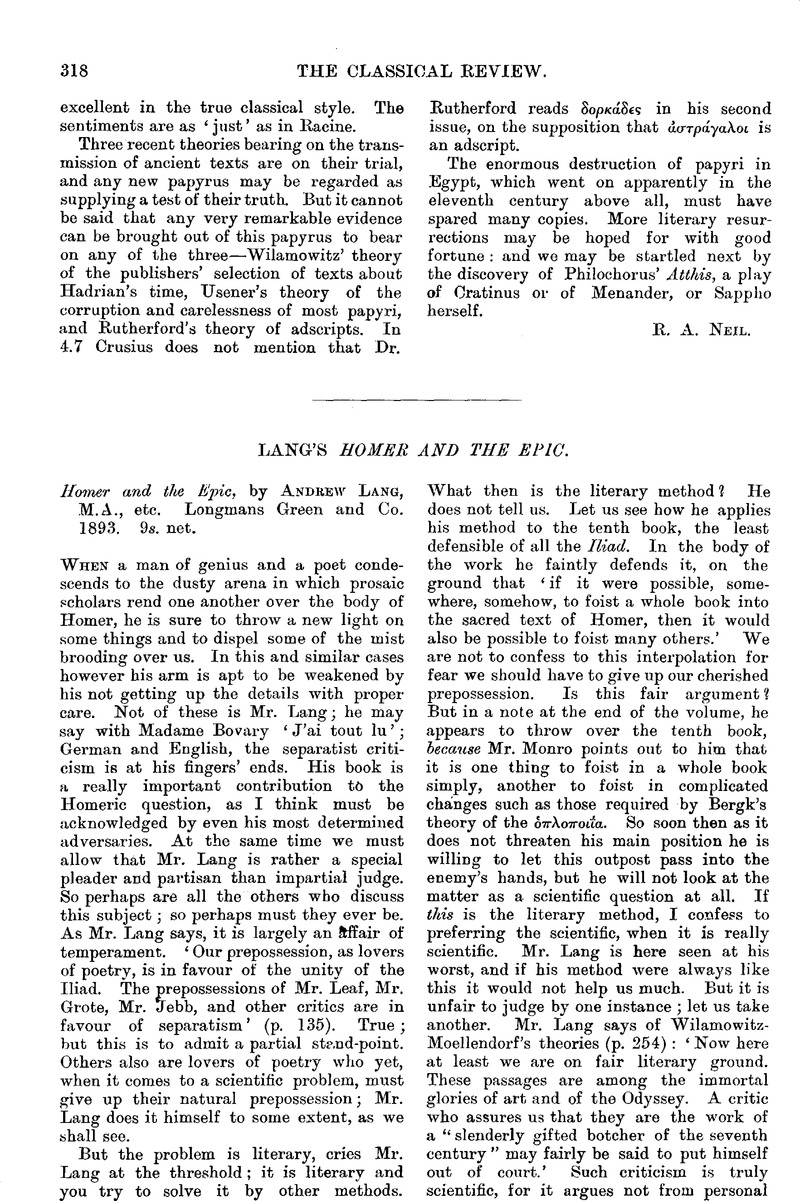No CrossRef data available.
Published online by Cambridge University Press: 27 October 2009

page 320 note 1 This has certainly happened with Mozart's Requiem, in which critics say it is impossible to distinguish the genuine elements; who would ever have heard of Süssmayer had he not been the diaskeuast of Mozart?
page 320 note 2 Or several of them, at any rate. And that style is the same for so many of them; or if not, let some one point out the differences.
page 321 note 1 Has Mr. Lang observed that Diomede in the tenth book which he once defended goes to the council in nothing but a lion-skin and a spear?
page 321 note 2 ‘This [mythology etc.] explains much,’ says Lang, discussing the twentieth book, ‘but it does not explain the prologue of the book (1—74) heralding a divine battle which is not fought in this but in the next book. The strange thing is that, when the prologue and the fight were divorced, the diaskeuast did not join them more skilfully.’ Cannot he see that this is the very difficulty about the enormous digression which follows the prologue of the whole epic (book i.)? He does explain much, but he does not explain the prologue heralding events which do not happen for thousands of lines.